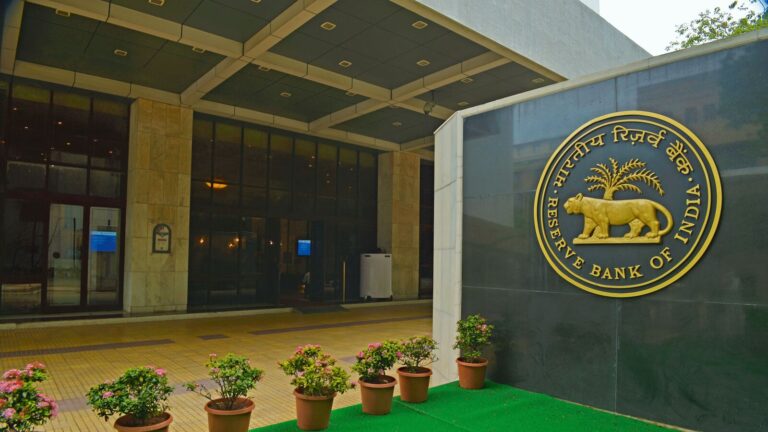MUMBAI: Nearly a year after cracking down on the proliferation of unsecured loans, India’s central bank has expressed concern that the stress on these loans will spill over into larger secured loans. Why: Many small unsecured loan borrowers also have mortgages and car loans.
According to the Reserve Bank of India (RBI), “Almost half of credit card and personal loan borrowers have other retail loan balances, many of which are high-value loans (home loans, auto loans).” ”, the Reserve Bank of India (RBI) said in its semi-annual report. The Financial Stability Report (FSR) was released on Monday.
This concern appears to stem from the fact that defaults in any loan category lead to lenders treating other loans to the same borrower as non-performing. Therefore, defaults on unsecured loans can cause large secured loans to become defective.
Indeed, according to the RBI, the non-performing loan ratio of unsecured loans such as credit card receivables and education loans is higher than that of other personal loans at 2.2% and 2.7%, respectively.
On the other hand, the non-performing loan ratio for auto loans was 1.4%. Mortgages, which account for 48% of all retail loans, have the lowest non-performing loan ratio at 1%. Non-performing loan ratio is the ratio of gross non-performing assets (GNPA) to total loan balances.
Also Read | What RBI has in store for banks and NBFCs: New regulations, focus on unsecured loans
“Initial defaults are mainly observed in unsecured advances. Among the borrowers at risk of default (progression in the SMA category), in addition to personal loans and credit card balances, other personal “Borrowers with loans tend to be at higher risk of delinquency,” the report said.
SMA refers to special mention account. Banks classify borrowers into SMA based on late repayments. SMA-0 loans are loans with repayment terms ranging from 1 to 30 days. SMA-1 between 31 and 60 days. SMA-2 is between 61 and 90 days. Once 90 days are overdue, the asset turns into NPA.
expert opinion
Under current standards, if a borrower is unable to repay a loan, the lender would classify all other loans made to the same individual as non-performing, according to analysts who track financial services. However, this does not apply if the first default and the other loans are from different financial institutions.
“As a proactive measure, lenders may start examining retail loans on a quarterly basis and increase provisions for loans where the borrower defaults elsewhere,” the analyst said on condition of anonymity. said.
The analyst added that this would provide a more accurate picture of asset quality, even though the cost of undertaking this initiative would be high and unlikely to be implemented without regulatory push.
The RBI on Monday said the unsecured loan GNPA ratio rose marginally to 1.7% as on September 30. The comparable figure as of March 31 was 1.5%.
Also read | Fintech companies target small loans for stocks, MFs and FDs as unsecured credit comes under scrutiny
However, it said the sharp rise in write-offs on such loans, particularly at private sector banks, may “partly mask deteriorating asset quality and dilution of underwriting standards in the sector”.
On multiple loans availed by the same retail borrower, RBI said 11% of the borrowers originated their personal loan with the following conditions: INR50,000 people have overdue personal loans, and more than 60% of them have taken out three or more loans so far in 2024-2025.
“Nonetheless, lenders are treading cautiously, as the proportion of below-prime customers across lenders and product types has declined slightly compared to a year ago,” the report said.
Lenders classify borrowers based on credit scores, with those at the top of the pyramid known as super primes and those one step below primes. The lower your credit score, the more likely you are to default on your debt.
According to the RBI, retail loan asset quality remained largely stable, with the exception of a marginal increase in credit card receivables across banking groups, with the highest credit growth among all retail loan sectors. “Careful monitoring may be necessary.”
Also read | Banks step up underwriting, slow pace of MFI lending as asset quality stress weighs on
Other loans under stress
Signs of stress are also beginning to appear in small loans.
According to an RBI report, in the first six months of 2024-2025, the proportion of microfinance assets under stress increased, with loans past due within 31 to 180 days increasing in March. It rose from 2.15% in September to 4.3% in September.
Additionally, stress remained high among borrowers with loans from multiple financial institutions and those with large loan balances.
For large borrowers such as corporations, initial stress and SMA-1 and SMA-2 loans were affected, the regulator said. It gradually increased in September.
SMA-1 and SMA-2 loans for large borrowers increased by 101% and 67%, respectively, between June and September.
“Furthermore, the SMA-2 ratio of large public sector banks’ borrowers in September has increased significantly year-on-year, which requires close monitoring,” it said.
And read | Deposits outnumber loans in bailouts to private banks
Get all the industry news, banking news, and updates on Live Mint. Download the Mint News app for daily market updates.
morefew


